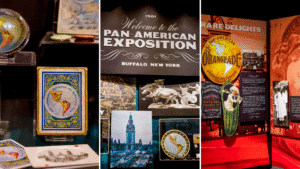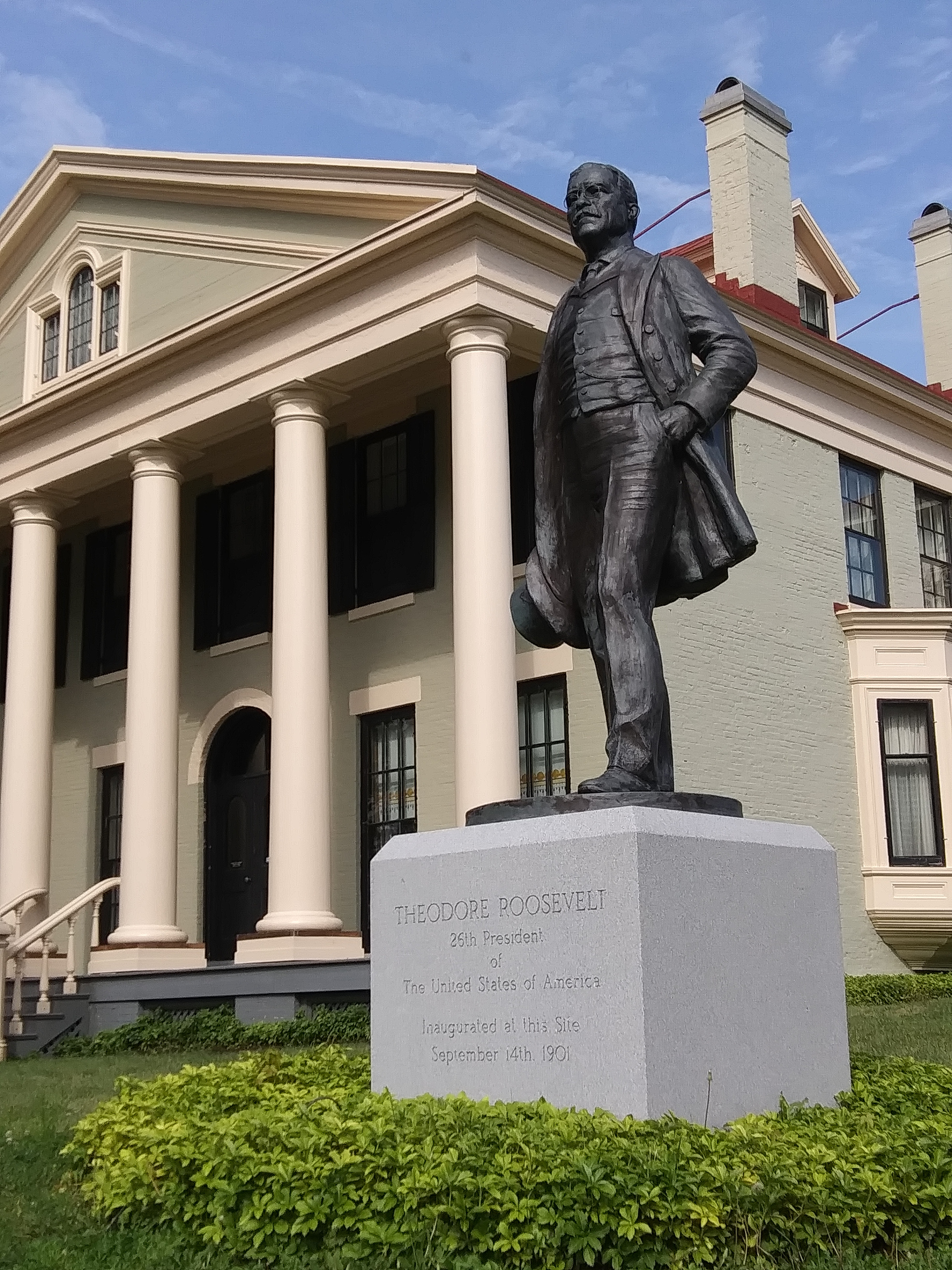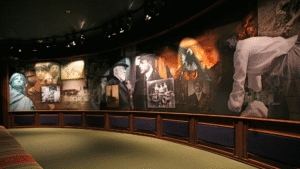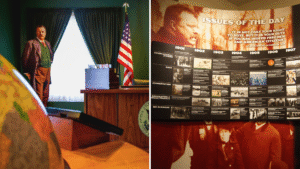Tour Overview
Step Into 1901
It’s the dawn of a new century. Millions are traveling to Buffalo, NY, to join in the celebration of the 1901 Pan-American Exposition. And you’re in the midst of the excitement, taking in the sights and sounds of the Exposition. Here, you can behold the many attractions, including the electric lights that illuminated the grounds – a technological marvel of the age.
Perhaps you’ll try your hand at the Captains of Industry game, and see if you have what it takes to command an early 20th century business. Or maybe you’ll crank the handle of the kinetoscope to watch a period film clip. No matter what you choose, you’re sure to feel the excitement and optimism of a country on the forefront of innovation.




